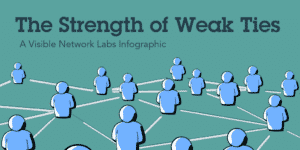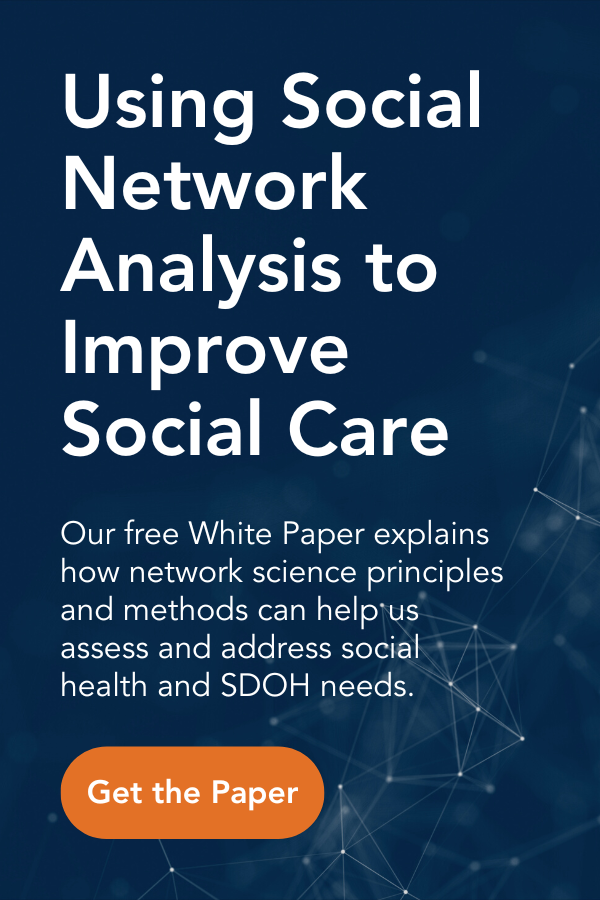Screening for Social Needs Provides Important Insights That Must Be Led With Empathy

The Social Determinants of Health, and the values, tactics, and infrastructure necessary for support and patient success are important and trending topics in the health policy world. The conditions in which people are born, grow up, live, and work account for up to 80 percent of their health outcomes. Factors such as access to healthy food, ease of transportation, social connectedness, and the quality of our immediate environment are largely responsible for our quality of life and subsequent health. Social determinants of health affect all patients, but can weigh more heavily in vulnerable communities. For example, fresh food may be scarce, transportation options may be limited, and environmental factors like air and drinking water quality may be suboptimal. For many reasons, including redlining and other systemic factors, the communities disproportionately impacted are rural and communities of color. Entrenched inequalities can inevitably lead to suboptimal health outcomes.
Approaching Social Needs
Healthcare providers and strategists are frequently deploying screeners and making referrals in hopes of addressing the root factors contributing to the health outcomes of their patients. While this is a logical approach, providers must be cognizant that “screening for patients’ health-related social circumstances is fundamentally different from screening for traditional medical problems”. Traditional medical issues, while personal, have an existing framework of tests, diagnostic tools, and procedures, which can feel more businesslike and less intrusive into one’s personal life. Doctors, nurses, and other staff have extensive training in having tough conversations about medical conditions; conversations addressing social determinants of health issues can be intrinsically different.
Questions Require Compassion
Asking a patient about their or their families’ housing, access to food, or the area they live in are sensitive conversations. The question wording, the tone in which they are asked, and the screening setting all contribute to how honest and actionable the responses are. Working with a provider who is clinically trained, and also skilled in empathic inquiry, motivational interviewing, cultural competency, and active listening can greatly assist in this process. Answering these questions truthfully requires trust in the provider. Trust that this information will be cared for appropriately, that the provider will respect the patient’s confidentiality and that upon divulging such information, the provider will ensure that there are logical, actionable, focused, and helpful steps to follow. Providers must be aware that truthful answers to many questions can subject patients and their families to serious realities such as anxiety, shame, social stigma, and legal risks. Families may be concerned that their answers may trigger child protective service investigations, or are rightfully distrustful of the medical profession that has done real-world harm to many vulnerable populations. In addition, because of the power dynamic inherent in the provider/patient relationship, the patient may be sensitive to the possibility of judgement or disapproval if they disclose details of their lives.
Ensure There Are Steps to Follow
Screening for social factors can rapidly uncover underlying issues that are “well beyond the scope of clinical care”, making it critical that successive steps to respond to the patient’s needs are already in place following the screener, no matter the outcome. Ensuring that the next step in the patients’ journey is effective requires high-level collaboration and coordination between varying providers and sectors of care. Simply screening patients to gather data or to get a more detailed picture of their life without the “capacity to ensure referral and linkage to appropriate treatment is ineffective and, arguably, unethical.” Beyond being ineffective and possibly unethical, a carelessly administered screening program runs the possibility of damaging relationships the patient has developed with the physician or with clinical settings overall.
Share Knowledge and Minimize Redundancy
Great care should also be taken in the macro as providers envision the patients’ journey. Patients should be significantly involved in the decisions that determine the next steps. If patients are burdened with an excessive number of screeners, surveys, and questions at each stage, their engagement will most likely decline. Further thoughtful coordination of information between providers at varying levels and insightful network analysis can reduce the redundancy the patient faces throughout the process. Working as a team with a shared goal of positive patient outcomes will help maintain patient engagement and drive provider success at improving the lives of their patients.
Enable Patient Engagement and Success
The social determinants of health and the tools necessary to gain insights on them are increasing in visibility across many clinical areas, and with great reason. A shift in focus to the patient’s personal life, such as how and where they live, work, and play is essential, but the guiding strategies and tactics to understand these factors must adapt. Patients across all backgrounds should be evaluated on the social determinants of health, not just “targeted subgroups”. All evaluations must be led with empathy, understanding, and a tuned ear. Each successive step in the process after screening and evaluation must be clear and intelligent, with care to not bombard and overwhelm the patient. Sharing and building upon the knowledge a patient entrusts to a provider avoids the experience of redundant questions that can erode a patient-provider relationship. The erosion could come from the patient feeling their provider hasn’t been listening to them since they ask many of the same questions. Making sure patients feel heard, with their concerns appropriately addressed helps ensure that social determinants of health screeners remain valuable and accurate tools to serve the ultimate goal of helping people and their families thrive.
About the Author: Will Jacobson
Will is the Marketing Intern at VNL, and he joined the company in October 2021. Originally from New York City, Will loves Colorado and all the outdoor life it has to offer. He is also a pretty big foodie! Will assists in content creation, marketing, and communications, and is finishing up his degree in marketing from the University of Colorado Denver.
|
|
Thank you for Signing Up |

More Social Care Resources





